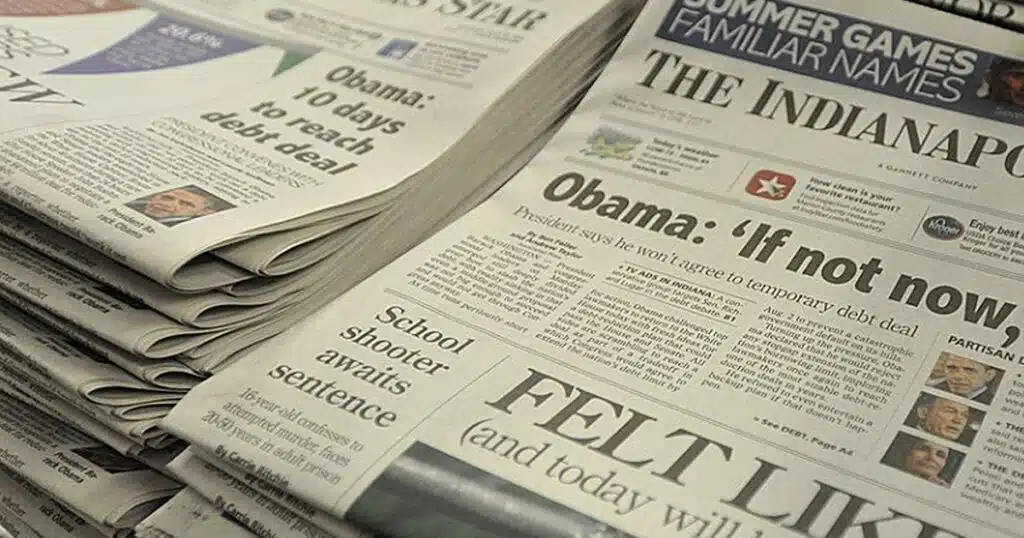
Newspaper Endorsements Near Extinction Amid Financial, Partisan Woes
The power of newspaper endorsements of political candidates is apparently diminishing across America’s political landscape, a casualty, it seems, of the news industry’s ongoing financial challenges, as well as the great divisiveness of today’s political environment.
Gone are the days when a prominent endorsement would become a featured feather in a campaign and voters would go to the voting booth accompanied by an editorial to remind them of the stakes in the current election cycle.
Newspapers controlled by Alden Global Capital — which include dozens of dailies, such as the New York Daily News, Boston Herald, Chicago Tribune, Orlando Sentinel and San Jose Mercury News — announced earlier this month they would no longer endorse candidates for president, state governors or the U.S. Senate.
After the effort news organizations have made over the many years in crafting what they hoped would be compelling endorsements, questions about whether those arguments truly have much influence have lingered, particularly in high-profile races.
Case in point, the 2016 presidential election, when 57 of the biggest newspapers endorsed Hillary Clinton and two picked Donald Trump, according to data supplied to the Associated Press by the American Presidency Project at the University of California, Santa Barbara.
That said, during an era when newspapers are clawing for readership, publishing executives wonder if they should even bother to choose political positions..
“Picking a candidate in this environment may alienate more readers than it persuades,” the New York Daily News wrote in announcing its new no-endorsements policy.
The UCSB research reveals out of the country’s 100 biggest newspapers by circulation, 92 endorsed a presidential candidate in 2008, while only 54 made a choice in 2020.
At the same, the growing unpopularity of the press has prompted many media consumers feeling they don’t like the newspaper boards telling them what to do, Poynter Institute media business analyst Rick Edmonds told the AP.
In an internal memo, leaders of the Gannett newspaper chain earlier this year pointed out editorials were frequently cited as a reason people canceled their newspaper subscriptions. Surveys showed opinion pages were among content least-read by consumers — and associated with in credibility and trust problems.
The widely expected complete disappearance of newspaper endorsements “is yet another loss for grassroots democracy,” said Penelope Muse Abernathy, a Northwestern University professor who catalogs the decline in local news, in a quote to the AP.
“I do think you can make the argument in many cases that they’ve outlived their usefulness because of the increased polarization and the skepticism of media in general,” said Carol Hunter, executive editor of the Des Moines Register, also told the AP, adding, “I don’t think that’s a healthy trend. But I think that’s reality.”
The AP reports Gannett didn’t ban political endorsements, but strongly advised its more than 220 newspapers to cut back on national opinion and focus on local issues. The Des Moines Register’s opinion pages, for example, now run twice a week. Similarly, the McClatchy newspaper chain also didn’t ban presidential endorsements, but decided its newspapers would not announce choices in races where its editors could not interview candidates, effectively cancelling any of its newspapers’ pull in presidential endorsements.
Of course, many news organizations simply have fewer people to do the work. Sixty percent of the journalists working at newspapers in the United States have lost their jobs since 2005, Abernathy said in the AP story.
Many politicians view the fading endorsements with a marked lack of concern, since news organizations once held in high esteem and viewed as objective are regarded by many on the right as being just as partisan as politicians, Republican consultant Alex Conant explained to the AP.
“Editorial boards used to be an important validator,” Conant said. “But they’re not that important any more.”


